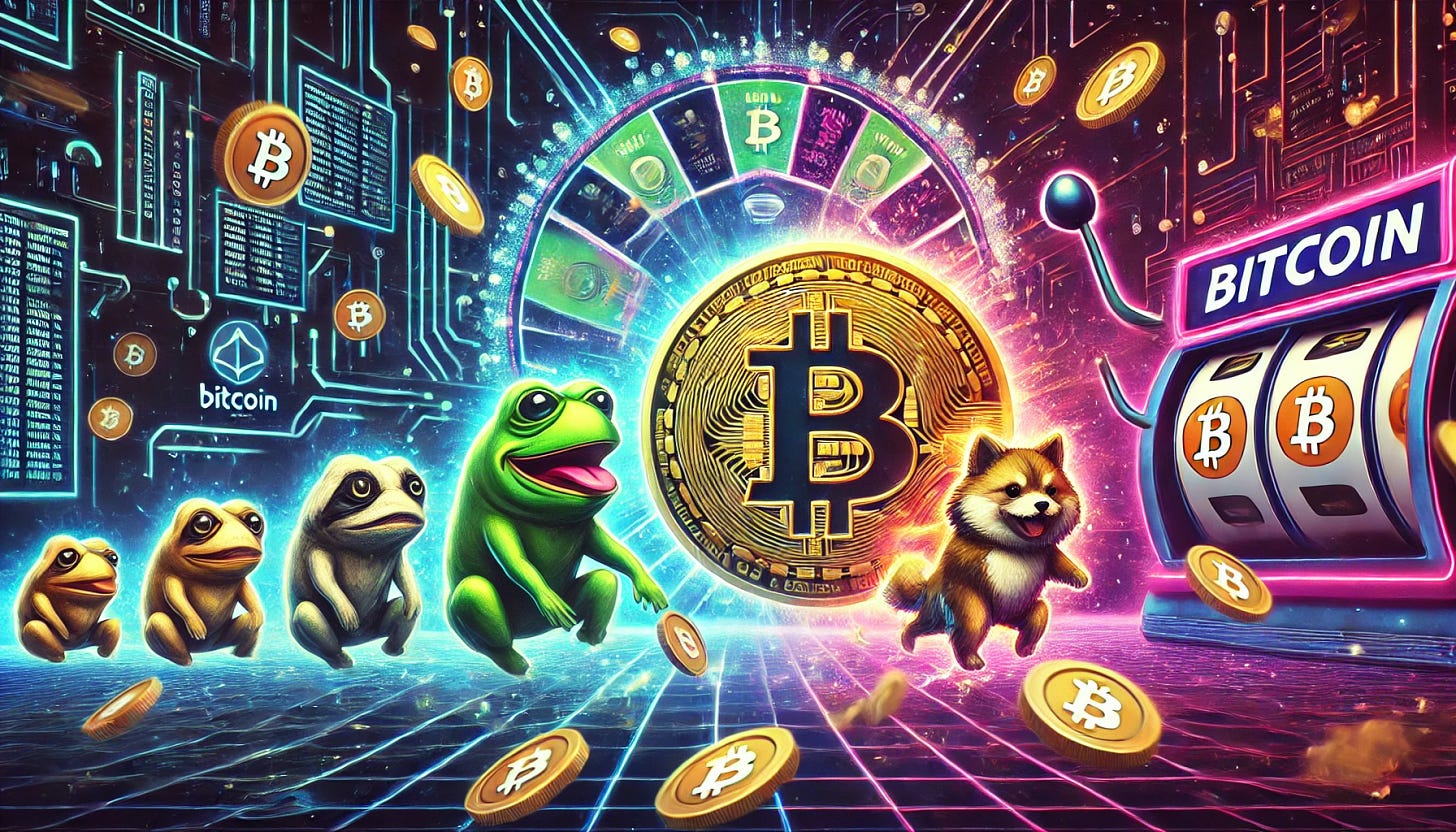The Evolution of Crypto Investing: From Bitcoin to Meme Token Trading
The emergence of Bitcoin in 2009 promised financial freedom and decentralization, capturing the imagination of individual investors. Over time, however, this idealism gave way to commercial interests and the pursuit of quick profits. By 2023-2024, the widespread trading of meme tokens had fundamentally reshaped individual crypto investing, turning many retail investors into the equivalent of slot machine players. To understand this shift, we need to examine its key phases and examples.
1. The Birth of Bitcoin and the Era of Idealism
Bitcoin’s inception symbolized the vision of a financial system free from central authorities. However, this vision gradually attracted professional investors and institutional players, such as Venture Capitalists (VCs). Andreessen Horowitz, for example, became a notable VC firm heavily investing in blockchain projects from 2017 onwards. Such investments often handed control of decentralized projects to "whales," or large capital holders.
VCs typically employed a strategy of inflating token value over time and exiting at the peak, leaving the community (retail investors) to serve as a source of liquidity. The DeFi boom of 2020 exemplified this model, where VCs invested early, rode the wave of retail enthusiasm, and exited once prices soared, leaving latecomers with significant losses.
2. The Meme Token Era: Fast Trades, Faster Exits
By 2023-2024, the long-term manipulation strategies of VCs gave way to meme token projects, where developers directly and swiftly exited by dumping on their communities. Starting with Dogecoin and gaining momentum with Shiba Inu, the meme token trend evolved into a frenzy, fueled by the allure of rapid profits.
Pepe Coin Example: Launched in 2023, Pepe Coin skyrocketed within weeks. However, this meteoric rise was underpinned by developers dumping their massive token holdings at the peak, executing what is known as a "rug pull." Retail investors faced devastating losses as a result.
Meme tokens capitalize on their volatility and social media-driven hype to attract retail investors. For developers, this offers an opportunity for short-term profits through direct sales to the community, without the need for long-term narratives or technological promises that VCs typically rely on.
3. Slot Machine Syndrome: The Psychological Trap
The role of retail investors in this transformation is particularly striking. During the ICO boom of 2017, many invested in projects under the belief they were backing "the future of technology." Over time, however, their ability to conduct technical or fundamental analysis proved insufficient. Meme tokens, with their high-speed trading cycles, drew retail investors into a mindset akin to gambling.
The Slot Machine Effect: Meme token trading feels eerily similar to playing a slot machine. Investors buy tokens in the hope of a quick price surge, only to double down on their losses when prices drop. This behavior mirrors the gambler’s fallacy of "chasing losses" to recover what was lost, often leading to greater financial harm.
Social media amplifies this psychological dynamic. Every new meme token is marketed as "the next Dogecoin," fueling fear of missing out (FOMO) among investors eager not to repeat past mistakes. The result is often a cycle of rash decisions and significant losses.
4. Weaknesses in Fundamental Analysis
Analyzing meme tokens is far more challenging than traditional cryptocurrencies or tokens because:
Teams behind these projects are often anonymous.
Most projects lack real technology or utility.
Price movements are driven almost entirely by social media buzz rather than intrinsic value.
Even with traditional coins, retail investors often struggle to conduct sound fundamental analysis. With meme tokens, where metrics are almost entirely speculative, their ability to make informed decisions is further diminished. This environment transforms retail investors from rational participants into impulsive gamblers.
Conclusion: From Freedom to Gambling
The promise of decentralization and financial freedom at Bitcoin’s birth has drifted far from reach for most retail investors. The combination of VC-driven long-term strategies and meme token developers’ short-term exits has turned the crypto market into a "casino" for individual participants.
This evolution underscores the lack of financial literacy among retail investors and their appetite for quick gains. What began as a journey toward financial sovereignty has, for many, become a high-risk game of chance. Understanding this shift from Bitcoin’s idealistic early days to today’s meme token frenzy provides valuable insights into the psychological and economic dynamics of modern crypto investing.


